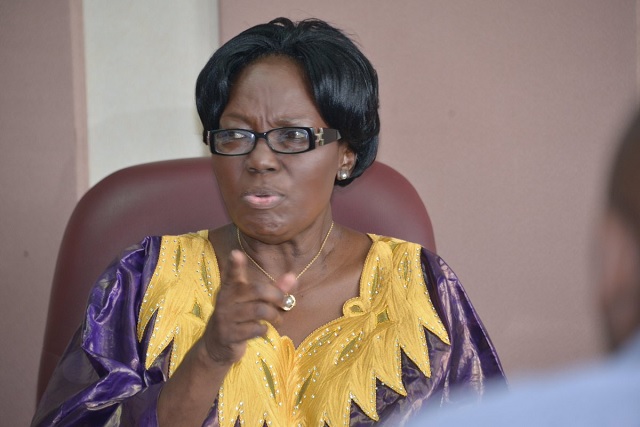
Kampala, Uganda | THE INDEPENDENT | The Speaker of Parliament, Rebecca Kadaga has disagreed with the decision of the Parliamentary Commission to pay the Over the Top-OTT tax.
According to bid documents seen by URN, parliament will pay the month Shillings 6000 OTT alias social media tax and provide 5GB data bundles for each of 458 legislators at Shillings 30,000.
This means parliament will spend Shillings 197.8M annually on social media tax and the data bundles. MTN Uganda Limited emerged the best bidder, according to the bid documents displayed on May 2nd, 2019.
Airtel Uganda and Africell Uganda were eliminated in the preliminary stages of the restricted domestic bidding process.
However, the Speaker of parliament, Rebecca Kadaga says she doesn’t believe that the public should pay OTT for the MPs.
Addressing journalists at parliament on Thursday, Kadaga promised to find out those behind the decision and scrutinize the contract.
Kadaga’s statement come a day after Robinah Nabanja, a member of the parliamentary commission defended the decision to pay OTT and provide data bundles for the legislators.
Nabanja said it was okay for parliament to pay for the tax since the Ipads the MPs use belong to parliament and they use them for official work.
She likened the Ipads to someone hired to dig a using hoe, saying they are not expected to bring their own hoes.
On Thursday, Peter Ogwang, the Commissioner in charge of Finance in the parliamentary Commission also defended the decision, saying just like Parliament buys internet for its computers in the house they are also extending that service to pay the OTT tax for the MPs Ipads and not their private phones.
Parliament approved the social media tax that requires every social media user in Uganda to pay Shillings 200 to access social media pages such as Facebook, twitter and instagram on May 30th last year.
The tax drew outrage from several Ugandans, saying it would curtail access to information. Several legislators supported the social media tax, saying it would generate additional income for government.
*****
URN
 The Independent Uganda: You get the Truth we Pay the Price
The Independent Uganda: You get the Truth we Pay the Price



